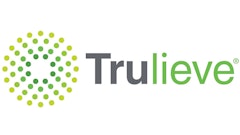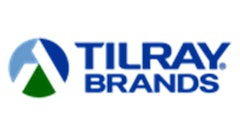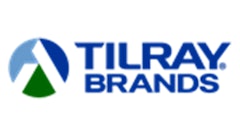
Just three days after signing an exclusive supply arrangement with Farmacias Magistrales S.A. in Mexico, Canadian producer Aurora Cannabis announced that it has entered into a letter of intent to acquire all issued and outstanding shares of the company.
The Dec. 10 press release didn’t convey much detail on the minutia of the deal, except to say that payment will be made in shares of Aurora “and based on a valuation of the proforma distribution revenue projections of Farmacias.”
The initial supply deal, announced Dec. 7, was significant in that it connected Aurora directly with the first and only licensed importer of medical cannabis products exceeding 1-percent THC in Mexico. Farmacias Magistrales, a health and cosmetics supplier formed in 2012, distributes products to 80,000 retailers and 500 pharmacies and hospitals across the country. Aurora’s non-flower medical cannabis products will be added to the company’s existing line of pharmaceutical and nutraceutical shipments, making the Canadian producer the only company currently allowed to sell THC-containing products to Mexican medical cannabis patients. (The deal remains subject to regulatory approval, as of mid-December.)
In June 2017, Mexico legalized what it calls “pharmacological derivatives of cannabis.” These are cannabis-derived products that contain less than 1-percent THC. Just last month, in fact, the government authorized a list of the first 38 products that can be sold legally. These products include a CBD tincture manufactured by Med Mex and a hemp oil manufactured by Finat México, among others.
That Farmacias Magsitrales holds the sole license in Mexico to import and distribute cannabis that exceeds that 1-percent THC threshold is significant. (According to the press release, the process of landing this import licensed was “exacting” and “took over four years to successfully complete.”)
“This transaction firmly establishes Aurora's first-mover advantage in one of the world's most populous countries, where more than 130 million people will have federally legal access to a range of Aurora's non-flower medical cannabis products containing THC,” the press release states, referencing the total population of Mexico. “Under the regulations governing the Mexican medical cannabis market, domestic cultivation, import or sale in Mexico of dried flower products is prohibited. Consequently, Farmacias is the only company to date with the ability to supply THC-containing products, and the only THC-containing offerings available initially will be Aurora-sourced higher-margin derivative products.”
But the Aurora deal also foreshadows what industry observers are hoping to see in Mexico in the future. Signs are gathering now and pointing toward some degree of cannabis reform.
In late October, the Mexican Supreme Court ruled that a ban on the recreational use of cannabis is unconstitutional. Soon thereafter, a senator filed a bill in the legislature to legalize cannabis. Newly inaugurated President Andrés Manuel López Obrador has been openly supportive of calls for legalization in Mexico. With the country’s top lawmakers and regulators now soliciting Canadian and Uruguayan authorities for advice on transitioning into a legal cannabis market, it seems like Mexico is closer than ever before to taking the leap.
And, indeed, as Aurora’s executives point out, the sheer population of Mexico means that its potential adult-use marketplace far outweighs the growth potential in either Canada (population: 37 million) or Uruguay (3.5 million).
"This transaction positions Aurora with exclusive access to supply THC-containing medical cannabis to a large market of more than 130 million people, while also enabling us to capture the full margin of the medical cannabis we sell there," Terry Booth, CEO of Aurora, said in a public statement. "Farmacias has a large distribution network of both retail outlets and pharmacies, which will enable us to quickly scale up our operations across Mexico. Integrating Farmacias with our operations in Canada and Latin America will not only accelerate growth, it will build substantial long-term shareholder value."























